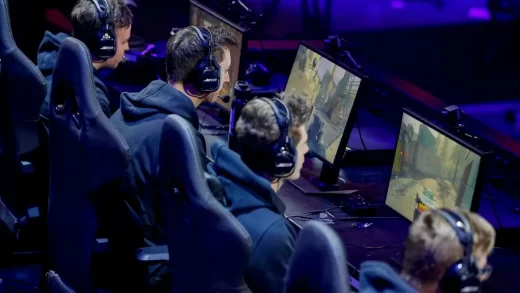Introduction
Esports, short for electronic sports, has emerged as a global phenomenon that has taken the world of gaming by storm. What was once a niche hobby has evolved into a multi-billion dollar industry with millions of dedicated fans and players worldwide. In this article, we’ll delve into the rise of esports, exploring its origins, growth, and the impact it has had on the gaming community and beyond.
1. The Birth of Esports
The roots of esports can be traced back to the early 1970s when the first video game competitions took place in arcades. As technology advanced, gaming competitions moved to home consoles and PCs, paving the way for online tournaments and organized events.
2. Evolution and Professionalization
In the late 1990s and early 2000s, esports saw a surge in popularity with the rise of competitive games like “StarCraft” and “Counter-Strike.” Organizers began to treat gaming competitions as professional events with cash prizes and sponsorships.
3. The Impact of Streaming and Social Media
The advent of streaming platforms like Twitch and YouTube Gaming revolutionized the esports landscape. Players could now showcase their skills to a global audience, while fans could interact with their favorite players and teams in real-time.
4. Esports: A Spectator Sport
Esports events are no longer limited to online broadcasts. Major tournaments now fill stadiums and arenas, with fans cheering on their favorite teams just like traditional sports.
5. Big Money and Sponsorships
The rise of esports has attracted big-name sponsors and investors from various industries. Esports organizations and players can now earn significant revenue through sponsorships, advertising deals, and merchandise sales.
6. Esports Titles and Genres
Esports encompasses a wide variety of game genres, including first-person shooters, real-time strategy games, multiplayer online battle arenas (MOBAs), and sports simulations. We’ll explore some of the most popular esports titles and their competitive scenes.
7. Becoming a Pro: The Path to Success
Becoming a professional esports player requires not only exceptional gaming skills but also dedication, teamwork, and perseverance. We’ll look into the journey aspiring players take to make it to the top.
8. Esports and Education
Esports is making its way into educational institutions, with some colleges and universities offering esports scholarships and programs to support talented players while pursuing their education.
9. Diversity and Inclusion in Esports
Esports has made strides in promoting diversity and inclusion, with efforts to address gender disparities and create a more welcoming environment for all players.
10. Esports on the Global Stage
Esports has gained recognition on the international stage, with major events attracting players and fans from around the world. Esports is now even considered for inclusion in major sporting events.
Conclusion
The rise of esports has transformed gaming from a solitary pastime into a vibrant and competitive industry. As technology continues to advance and the esports community grows, we can expect even more thrilling competitions, larger prize pools, and a broader acceptance of esports as a legitimate form of entertainment and competition.
FAQs
- How much money can professional esports players earn?
Earnings for professional esports players can vary widely depending on their skills, popularity, and the titles they compete in. Top players can earn millions through winnings, sponsorships, and streaming revenue. - Do esports teams have coaches and managers?
Yes, many professional esports teams have coaches and managers who provide strategic guidance, analyze opponents, and handle team logistics. - Are there age restrictions for competing in esports tournaments?
While some tournaments may have age restrictions, many esports competitions are open to players of all ages. - How can I start following esports events and competitions?
You can watch esports events on streaming platforms like Twitch and YouTube Gaming. Many esports organizations also have official websites and social media channels to keep fans updated. - Is it possible to have a career in esports beyond playing professionally?
Yes, there are various career opportunities in esports, such as shoutcasting (commentating), content creation, coaching, event production, and team management.












